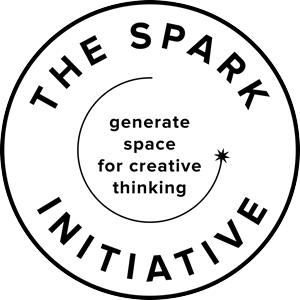SPARK THINKING
Challenging, thought-provoking and useful
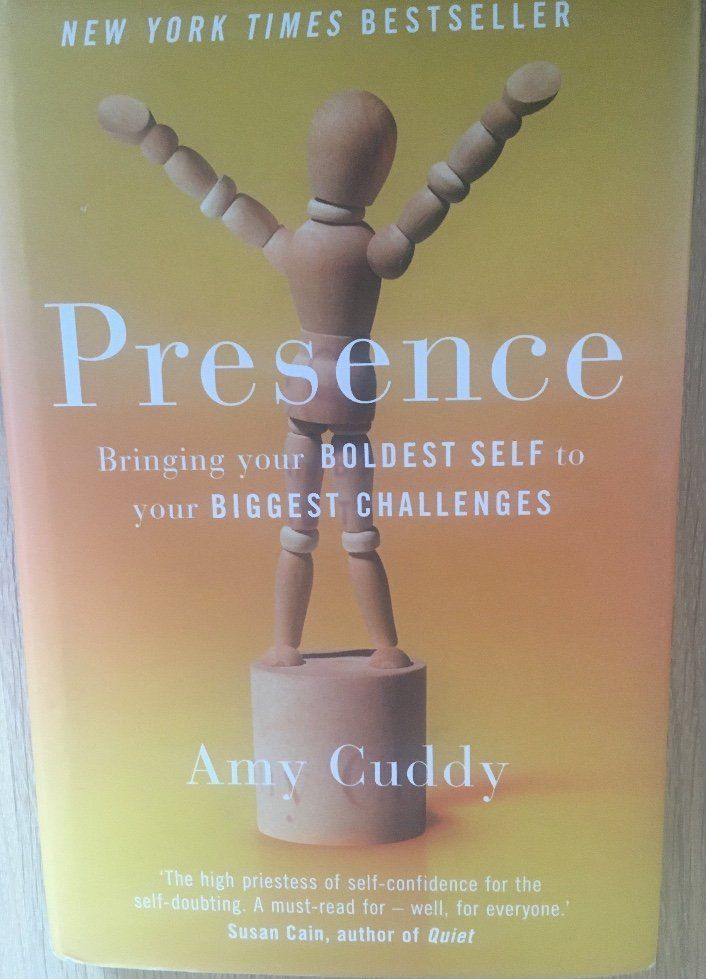
When Amy Cuddy’s PRESENCE was published it was widely credited with introducing a new approach to building confidence, especially for women. Cuddy’s approach links body and mind, explaining that by exuding confidence through the body, you will be able to trick your mind, helping you to feel more confident in difficult situations. If you adopt a power posture (the Wonder Woman pose for example), it will help you achieve true presence which Cuddy defines as ‘… the state of being attuned to, and able to comfortably express, our true thoughts, feelings, values, and potential.’
This was a book I was excited to read, but I’m afraid I’ve come away a little disappointed. It’s easy reading, and offers some interesting points, but I don’t believe it is groundbreaking. To be fair, the book covers much more than the famous power posing. It recommends ways to self-affirm, the importance of listening to others, and how authenticity (believing in your own story) is key to success. All laudable points, if not that original.
Cuddy’s exploration of ‘Imposter Syndrome’ is good. She highlights that often ‘we over-generalise because we grasp at anything that reinforces our secret knowledge that we are unworthy.’ By reinforcing our true life values, and remembering our successes, we can start to guard against this erosion of confidence and move forward.
PRESENCE also highlights how focusing on the self can lead to anxiety, and how anxious subjects fail to ‘get out of their own heads’ as she puts it, so they are unable to see things from any other point of view but their own.
Overall, if you are reading a one-off book to help you boost your confidence, then yes this is a good book. However, if you’ve read ‘The Chimp Paradox’ by Professor Steve Peters, or ‘Insight’ by Tara Eurich, then you can skip this one.
Readability : 9/10
Usefulness: 7/10
Originality: 4/10
Overall rating: 7/10
Publisher : Orion Books (£8.99)
Buy the book : www.waterstones.com/book/presence/amy-cuddy/9781409156024
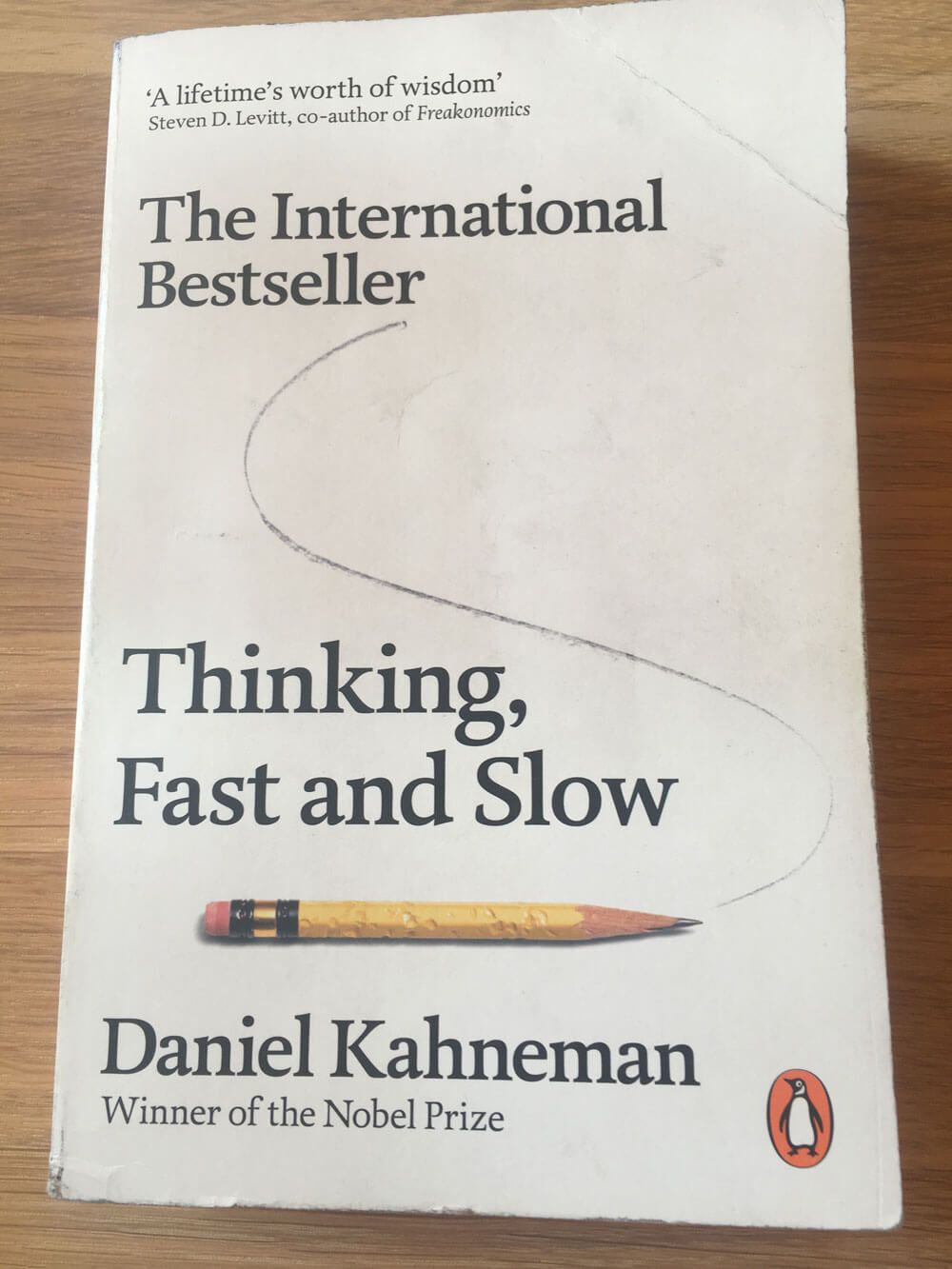
When is our intuition a valuable resource and when might it steer us awry?
Why are our best laid plans too often over-optimistic?
How does the way that options are framed affect our choices?
The answers to all these questions and many more are explored in Daniel Kahneman’s unlikely global bestseller.
Since its publication in 2011, critics have raved about this book’s collection of insights into the human mind. An academic psychologist who ended up receiving the Nobel Prize in Economics, Kahneman has a unique ability to weave profound analysis of the way we make decisions into entertaining reflections on his career and colleagues.
A central theme is the idea that we each have two systems of thinking: one that operates automatically with no effort; and one which allocates attention to effortful mental activities. From this starting point Kahneman takes us on a journey to investigate the patterns of predictable biases in our choices and judgments. A fairly dense read in parts (a lighter alternative is Michael Lewis’s excellent The Undoing Project ), this hugely thought-provoking book entirely justifies an investment of your time and attention.
Readability: 7/10
Usefulness: 8/10
Originality: 10/10
Overall rating: 9/10
Publisher: Penguin Books Ltd. (£9.99)
Buy the book: www.waterstones.com/book/thinking-fast-and-slow/daniel-kahneman/9780141033570
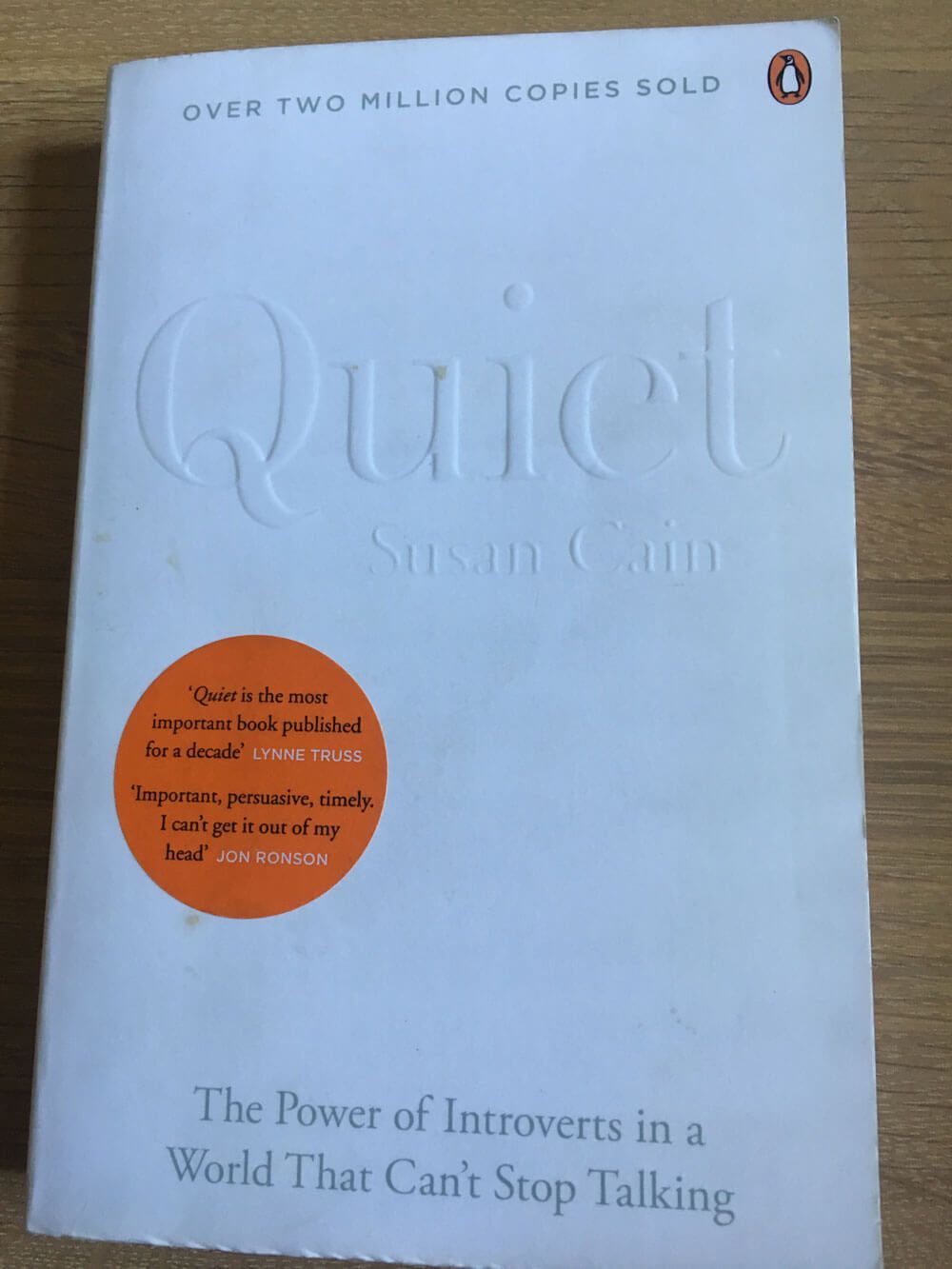
The strap-line of this book says it all ‘ The Power of Introverts in a World That Can’t Stop Talking!’. Cain traces the world’s transition from a ‘Culture of Character’ (think Abraham Lincoln) to a ‘Culture of Personality’ (think Donald Trump), which roughly translates as ‘The triumph of style over substance.’ As she explains: ‘the loudest have taken over, even if they have nothing to say.’
We’ve all been in meetings where one person has managed to divert the attention of the entire group by talking louder and longer than anyone else. Meetings, as Cain points out, can degenerate into a mere war of egos. More seriously, this can result in ‘GroupThink’ where those who are the loudest prevail, simply because everyone else follows their lead, and the quieter, more introverted deep thinkers don’t get a word in edgeways.
Cain goes on to point out that there can be a failure to distinguish between good presentation skills and true leadership ability. In today’s world there is not enough emphasis on substance and critical thinking.
This is a very readable and illuminating book. Cain demonstrates that the way the business world has developed has led to introverts being overlooked, their ideas not heard and as a result many opportunities and solutions are lost.
Cain illustrates her points beautifully using examples such as Rosa Parks and Bill Gates to argue for quiet strength and in the latter chapters explores how to nurture introverted children and how to ensure that a marriage of introvert/extrovert can work.
Overall, a book well worth reading for any manager; it will make you rethink your approach to your team and help raise awareness of how to help quieter team members to contribute more.
Readability: 8/10
Usefulness: 8/10
Originality: 9/10
Overall rating: 8/10
Publisher: Penguin Books Ltd. (£9.99)
Buy the book: www.waterstones.com/book/quiet/susan-cain/9780141029191
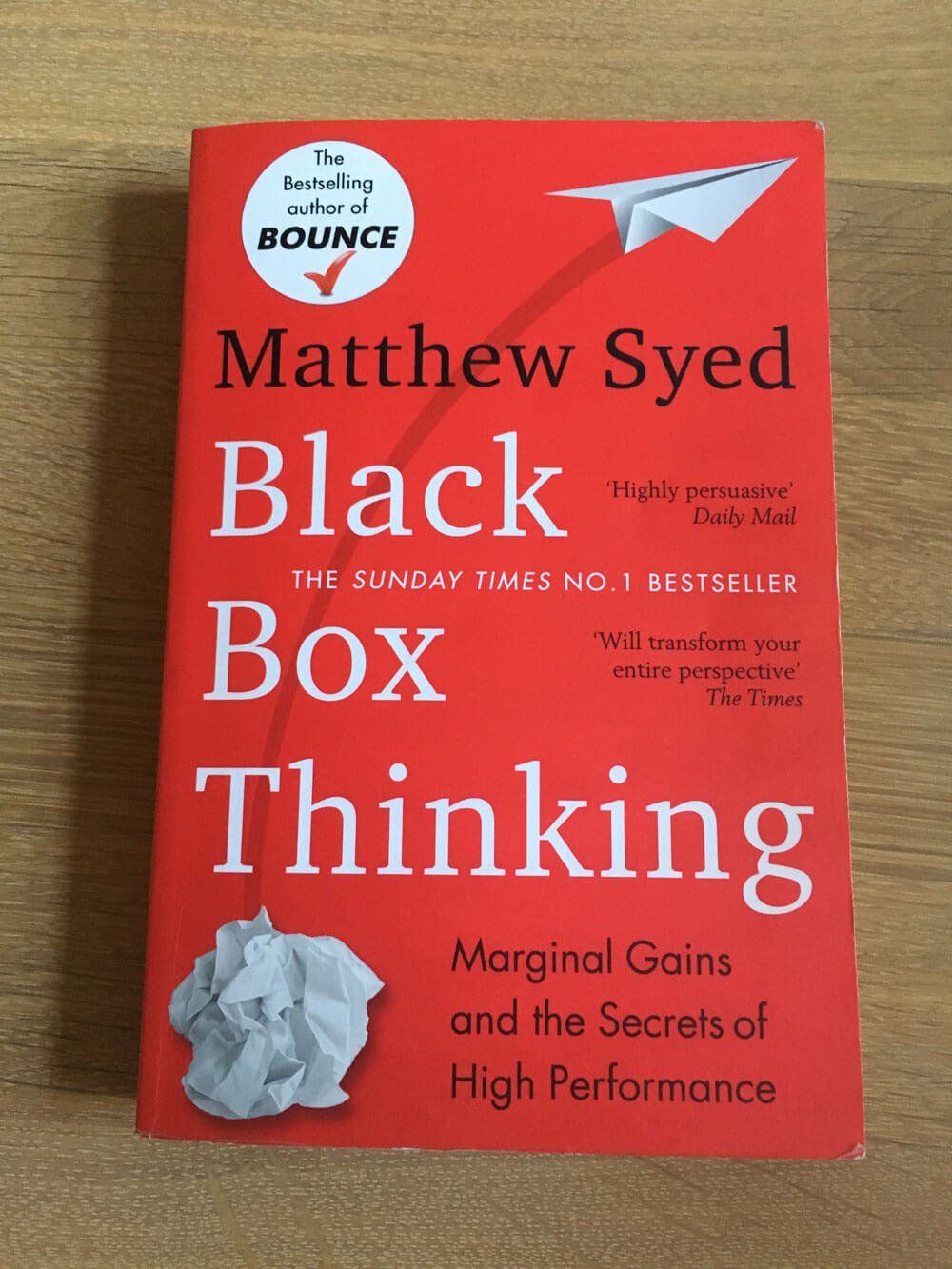
Former English Table Tennis International and Times journalist, Syed draws on the worlds of sport, medicine and business in his book Black Box Thinking. An entertaining and easy read, the book’s key premise is ‘it’s time to redefine failure’. Failure is good, it is only by failing and crucially, understanding why we’ve failed that we can finally succeed. He explains how the fear of making mistakes and the practice of attributing blame can hold a business back. However ‘If a culture is open and honest about mistakes, the entire system can learn from them.’
This mix of case studies and first-person stories will keep you turning the pages and prove informative and illuminating. However if you’ve read Malcolm Gladwell’s Outliers (see Syed’s chapter on The Beckham Effect) or Carol Dweck’s Mindset ‘(Creating a Growth Culture), you will find some of his concepts familiar.
Despite this, I found the book engaging if a little pompous (I lost count of the number of times he used the word ‘seminal’). In a particularly thought-provoking chapter, Syed examines our tendency to reframe evidence in a way to confirm our biases. Syed makes this point repeatedly and it’s a good one. How many of us have twisted facts to suit our own particular story, to help us feel better about something we’ve said or done, rather than face up to a mistake? By ‘reframing’ our mistakes to suit our own personal story we miss the opportunity to learn. As Syed says: ‘We progress fastest when we face up to failure – and learn from it’.
Syed quotes philosopher Karl Popper: ‘True ignorance is not the absence of knowledge, but the refusal to acquire it.’
Read Black Box Thinking if you haven’t read Carol Dweck’s Mindset , it’s a lighter read.
Readability : 9/10
Usefulness: 8/10
Originality: 4/10
Overall rating: 7/10
Publisher: Hodder and Stoughton General Division (£9.99)
Buy the book: www.waterstones.com/book/black-box-thinking/matthew-syed/971473613805
